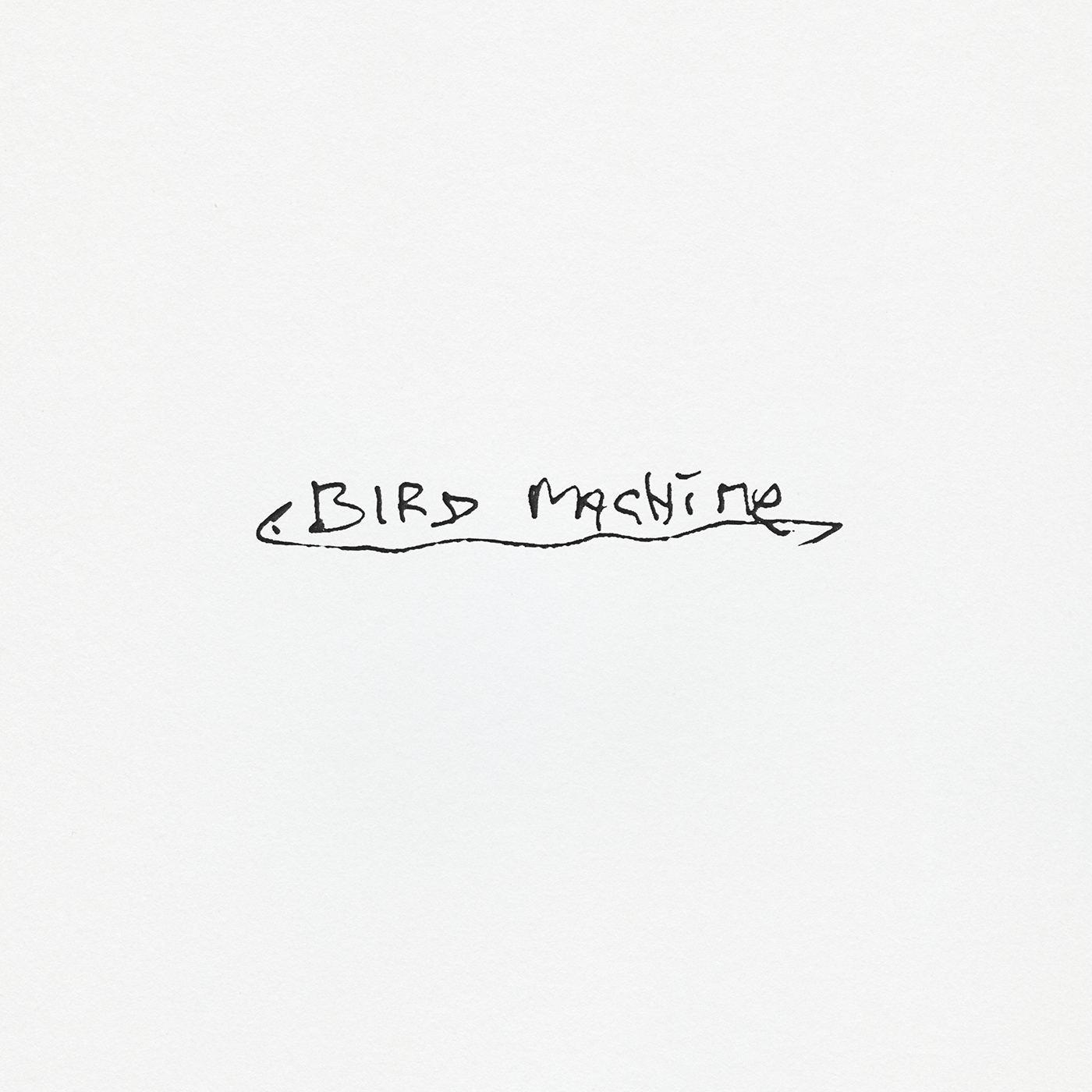
Bird Machine
—
Out September 08
—
ANTI-



Music had always been a shared language between Mark Linkous and his younger brother Matt, and as Mark began work on what he planned to be the fifth Sparklehorse album in 2009, the two of them would talk through his plans for the record. Matt can clearly recall their conversations; Mark’s excitement about the influences feeding into it and the way the songs were starting to take shape.
“Around the time, he was listening to The Kinks, MF Doom, Grandaddy, and the Beatles,” remembers Matt. “He said that he wanted to make a straight-up pop record like Buddy Holly. ‘That would be brilliant,’ I said. ‘Just get the best rhythm section you can find and hit record.’” During Mark’s last visit to Matt and sister-in-law Melissa they drove around in Melissa’s car blasting out the albums that were providing Mark’s inspiration for the new record and singing along.
It was these experiences and conversations that Matt and Melissa – who had both worked with Sparklehorse – returned to years later as they began to sift through boxes of tapes and CDs to catalogue and preserve Mark’s unreleased recordings and bring his posthumous album, entitled ‘Bird Machine’, to life.
Over the course of four beautiful and otherworldly Sparklehorse records and two Sparklehorse collaborative projects, Mark had built a reputation as one of alternative rock’s most distinctive and influential songwriters. His combination of ghostly static-scarred ballads and thrillingly distorted rock was revered by fellow musicians such as Thom Yorke, PJ Harvey and Tom Waits, all of whom he recorded with, and deeply cherished by his fans.
But the intimacy and honesty that made his songs so special also laid bare the troubles that he carried. As he continued to work on his fifth album in the fall of early 2009 and early 2010, recording with Steve Albini in Chicago, and in front of his beloved 1968 Flickinger mixing console at his Static King studio, the depression which had shadowed him for many years began to deepen. On March 6th, he took his own life at the age of 48.
The news of his death was met with tributes from around the musical world. Patti Smith likened his songs to ‘coal compressed into diamonds.’ Radiohead’s Colin Greenwood described how he had ‘carried the music into [his] life and [his] friends’ lives too.’ And though another record did follow, a star-studded collaboration with producer Danger Mouse entitled ‘Dark Night of The Soul’ which had been finished a year before Mark’s death, it was received by fans as a beautiful but definitive full stop to the Sparklehorse story.
Yet several years later, when Matt, Melissa and Bryan Hoffa, an audio preservation specialist at the Library of Congress’ National Audio-Visual Conservation Center who had worked with Mark in the past, began the painstaking process of listening to and archiving Mark’s recordings, they found the ideas that Mark had discussed with Matt had been vividly and powerfully achieved. “As we were getting towards his later recordings, I was listening to this and the songs were so honest and pure,” says Matt. “Mark did this confessionally, without pretense.”
Mark was famously perfectionist about his work and the question of whether to complete the album weighed heavily on Matt. “It’s the hardest decision I’ve ever made,” says Matt. “It’s difficult making a choice about someone else’s art, even if you’ve known them all your life and worked with them, even if they were your brother and best friend. We had long conversations about not wanting to take this into a different direction. We wanted to bring out what was there.”
It helped hugely that Matt and Melissa were able to work with a team of musicians – including Alan Weatherhead, who produced ‘Bird Machine’ with Matt and Melissa, Joel Hamilton who mixed the record, and Greg Calbi, who jointly mastered the final version – who had worked with Sparklehorse and cared deeply for Mark. And crucially, it felt clear to them that most of the record was already in place. Mark had given it its title and a track-listing in handwritten notes received by Matt.
A number of the songs were close to completion, while others needed only careful encouragement – the addition of subtle instrumentation and accompanying vocals in some cases, another careful mix in others – to take flight. “It was as though the songs let you know,” says Melissa. “Mark communicated these songs. We just did our best to transmit them.”
The finished results are instantly and unmistakably recognizable as Sparklehorse. There is tenderness and beauty on songs such as “Evening Star Supercharger,” a track featuring vocals from Mark’s nephew Spencer, and on “The Scull of Lucia,” to which Grandaddy singer Jason Lytle adds harmonies. There is an irresistible punkish energy too, not least on “It Will Never Stop” and “I Fucked It Up,” a joyously ragged hymn to self-sabotage.
The lyrics brim with a sadness familiar to fans of Mark’s records. Fragility and darkness were often seen as synonymous with Sparklehorse, and somewhat to Mark’s frustration, the story of how his heart had briefly stopped after an accidental overdose while on tour in 1996 became part of his abyss-gazing mystique. But they are combined with a sense of wonder and deeply felt appreciation of the world. “There’s the pain in his music but also hope and beauty,” says Melissa. “Mark took what he had as experience and put it into song and poetry: trying to find peace, working to stay, the struggles of being human.”
From the time that Mark began working on these songs to the record’s imminent release, 14 years have passed, a long time for a collection of tracks that were already well advanced at the time of Mark’s death. But there’s something too in the album’s long and complex gestation – the chaos of old tapes, the love and care that Mark’s family and his close musician friends have shown to every detail – that makes this so distinctively a Sparklehorse record.
“It means so much to me, this last batch of beautiful stuff that my brother was putting together,” says Matt. “When I sit down and put on a pair of headphones, I’ll put on the first track and run it all the way through. Everything from “It Will Never Stop” to “I Fucked it Up” to “Stay,” that’s Mark just letting it out.”